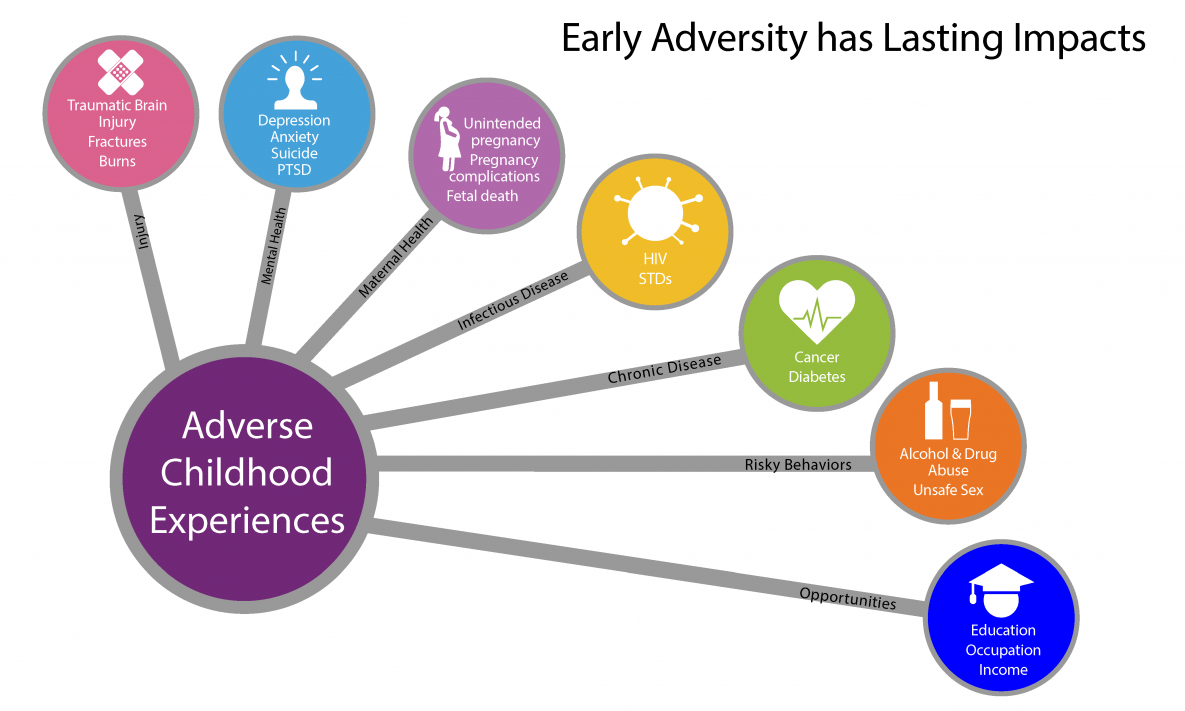By Michael Nelson
[This is part of a series of briefs covering the 2019 State of the Public’s Health conference produced by graduate students at the UGA Grady College of Journalism & Mass Communication in conjunction with the Health and Medical Journalism Program.]
Preventing child trauma takes a village, and a coalition of 20 foundations called Resilient Georgia aims to create the community needed to tackle the challenge.
The nonprofit, whose mission is to develop an integrated behavioral health system that can help with early intervention, formed after a 2016 report from the Georgia Department of Public Health drew attention to adverse childhood experiences— like physical and emotional abuse or witnessing violence between parents.
“Data has proven over and over again that adverse childhood experiences have a really long-term impact,” said executive board chair Brenda Fitzgerald during a panel at the recent State of the Public’s Health Conference, a two-day event hosted by the University of Georgia College of Public Health.
Over half of adult Georgians have experienced at least one, and 17% of those adults experienced four or more, the 2016 report found. Many of the organizations involved with Resilient Georgia work with children directly to lower the rate and impact of child trauma, and some have a special focus mothers and future doctors.
“We are in the state with the highest maternal mortality rate, in the country with the highest maternal mortality rate in the developed world,” Jacob Warren, joint executive director of South Georgia Healthy Start. Unhealthy pregnancies and maternal mortality are linked to child trauma, he said.
South Georgia Healthy Start works to eliminate disparities in maternal and infant mortality in seven rural counties in southeast Georgia: Appling, Bulloch, Candler, Emanuel, Jenkins, Tattnall, and Toombs. It offers mental health support, telehealth services, and curriculums and case management for mothers, from the time a child is conceived to 18 months after delivery, Warren explained.
Astrid Prudent works as the assistant project director for Trauma-Informed Universities, a pilot educational project at Georgia State University designed to help future health workers understand trauma.
The goal is to provide awareness to graduate students while they are going into their practicum sites: “Really giving them language and information around traumatic experiences, recognizing that many of the children they will serve have dealt with some level of trauma,” said Prudent.
The three-hour curriculum being tested in five Georgia universities wraps in the spring, and a subsequent assessment will determine whether it should be expanded to other universities.
The organizations that partner within Resilient Georgia focus on different areas—but that’s the point.
“If there’s going to be change in the state, you are best if you have a public, private, academic partnership where all the people in each of those groups are using the same language and are using their collective skills to look at the same problem,” said Fitzgerald.
Posted on November 15, 2019.
Additional Conference Briefs:
- How working with community volunteers can bridge gaps in health care access
- When loss negatively affects an individual’s health, bereavement training can offer solutions
- Designing for better health outcomes in rural communities
- Health misinformation confuses communities, persists in memory
- Improving family’s public health by making education a focal point







